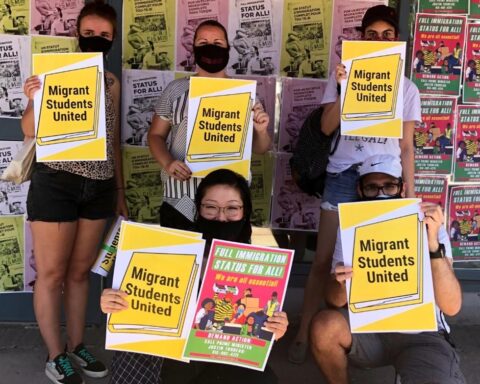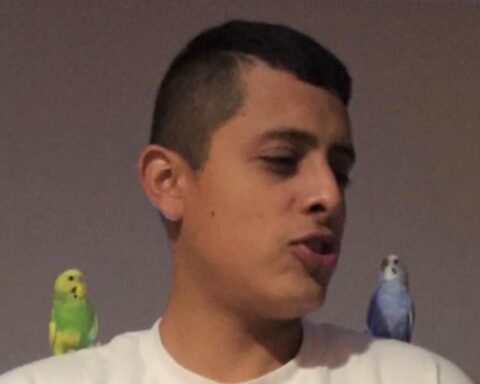I first became a “dreamer” more than forty years ago. That is when my parents brought my sisters and me to the heart of East Oakland for what we thought was a summer vacation. Since then, I have not returned to Huisquilco, Mexico, the town where I was born.
We were brought as undocumented children by our undocumented parents because they wanted a better life for us and they understood that a life in the shadows in the United States was so much better than a life of economic uncertainty in Mexico. “Keep your head down, work hard, don’t complain!” These were the precepts that guided our lives as we incorporated ourselves into our new American society. Eventually, after a decade of living in the shadows, amnesty came and thus we transitioned out of our precarious legal status.
Forty years later, all four of us children have graduated from UC Berkeley, three with advanced degrees, including two with PhDs from Berkeley and UCLA. But ours is not a story that means to boast about our achievements. Rather, ours is a story that reveals to what degree the hegemony of anti-immigrant terror consumed our lives and motivated us to show that we were more than our legal status. We went from being undocumented immigrant kids to being hyper-documented students (award after award, degree after degree), as Professor Aurora Chang likes to call it, all in an effort to escape the “illegal alien” taboo.
After having been on the faculty at various universities across California, I am now an administrator at Berkeley. It is in this capacity that I often interact with current DACA students. Almost all of them, save a few eccentric nonconformists, remind me of the student I once was: quiet, perpetually smiling, with a slight melancholic torpor pulling at the edges of our eyelids.
All of them will tell you that they foresaw Trump’s viciousness because that is what being undocumented does—it gives you prescience about oncoming doom. Still, all of them would trade their prophetic talents for the promise, however tenuous, that things might get better.
A few days ago, when I heard Jeff Sessions read his carefully worded statement on behalf of the President, I was again reminded that in this country civil rights are not gained without consistent and active struggle. Civil rights for undocumented immigrants is precisely the kind of possibility that the repeated use of the words “illegal alien” are meant to foreclose. And those who are guided by malignant nationalism know that. There, at the podium, Sessions stood like a reincarnated George Wallace blocking the entrance to the University of Alabama. There, as the camera narrowed its focus on his legalistic monologue, he asserted that America could only be made great again if it segregated itself from so many unlawful overachievers. How dare they aspire towards a better life? He seemed to ask.
And, of course, not all undocumented students, DACA or otherwise, are overachievers. Too many of them are weighted down by the pressures of just making it in Trump’s America that doing okay is already the result of a herculean effort.
A few days ago, I was reminded that there is a difference between justice and the so-called “rule of law,” especially when that law is selectively applied. What kind of world gives a convicted felon like Joseph Arpaio amnesty and summarily condemns 800,000 young people to a life in the shadows? Conservative recalcitrants like Steve King take it a step further and argue that undocumented immigrant kids and their families should live in the shadows forever. That’s where they belong.
What the Civil Rights Movement and the 1986 amnesty made clear to me was that sometimes America is capable of showing compassion. Still, it is not hard to surmise that there were some back in the 1980s who predicted the downfall of this nation because more than three million undocumented people, including my family and me, were pardoned from our immigration sin. Most likely, among those people were the Arpaios, Sessions, Kings, and Trumps of the world. Indeed, it is that undoing, that desire to erase what those new Americans brought to the United States, that has seemingly motivated the Make America Great Again campaign.
I can honestly say that I am still a dreamer today though I have been a citizen since 1992. What I dream of today, however, is a United States where we can have a just discernment of policy instead of the selective application of draconian laws.
Alberto Ledesma was an undocumented immigrant student in the 1980s. He is now the Diversity Director for the Arts & Humanities at UC Berkeley. This piece was republished under arrangement with New America Media.




